Leslie of Mill Valley Chickens treated us to a talk and tour of her backyard chickens.
Historically, keeping chickens was purely utilitarian and had a dual purpose. They were kept for about 2 years for the eggs then eaten. Now there is a chicken craze over the whole country. Leslie says she has had customers come from as far away as Los Angeles and has gotten calls from as far away as the Middle East for information about chickens.
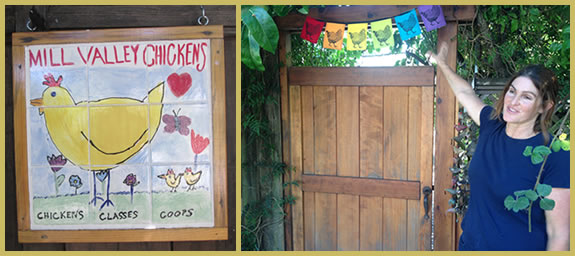
Leslie of Mill Valley Chickens
She started raising chickens with her children. They belonged to 4H and showed chickens at the county fair. Chickens have a lot of expressions and personality and are fun to have as pets. She says they are a lot like middle-school-aged girls – there is a pecking order and you “can’t force them to be nice”.
Common predators of chickens include bobcats, raccoons, coyotes, owls and hawks. Roosters will defend his flock from predators, making sure all the hens are in the coop at night. He will sacrifice his life in defense of his flock.
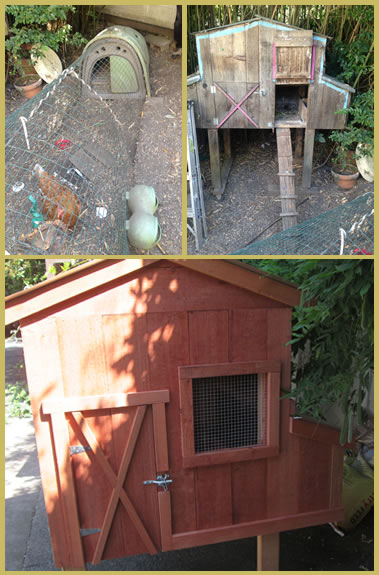
Coops
Leslie raises and sells chickens plus their feed, supplies and chicken-themed products as well as building redwood coops and runs for backyard chickens.
When asked about soy-free feed, she claimed that in her experience soy-free feed is bad for chickens. She has seen leg problems develop and egg production goes down.
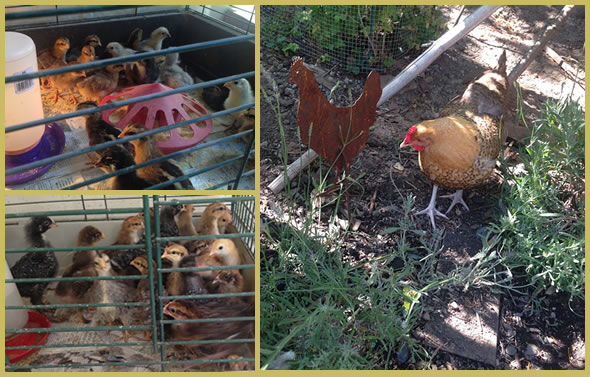
Hens of all ages and breeds
Leslie raises about 23 different breeds. One of her favorites is the naked neck. “When you look like that you need to have a great personality.”
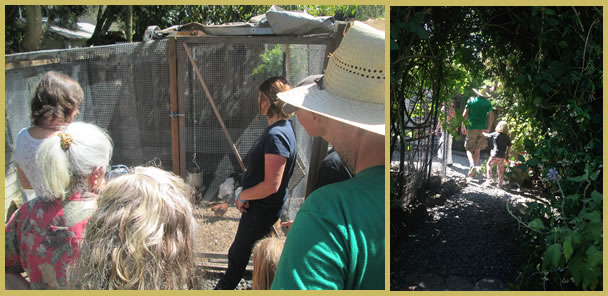
Our tour
She says that we are paying extra for pastured eggs and feels like it’s misleading, especially in this area where there is no rain for 6 months of the year. Even if chickens are on pasture outside in the sun and fresh air, 90% of their food is commercial grain coming from Texas because there isn’t food available in the fields – it’s too dry and barren. And chickens denude everything so unless they are moved very frequently, there won’t be enough plants and bugs for them to eat. She feels that eggs should be a lot more expensive if the chickens are raised humanely.
In the 1930s factory farming began where the hens were raised inside on concrete. Diseases are easily spread in the dirt but concrete can be bleached and disinfected. She said the chickens sold in the grocery store are only 5 weeks old when slaughtered. They grow so quickly that they can’t hold their own weight after 5 weeks.
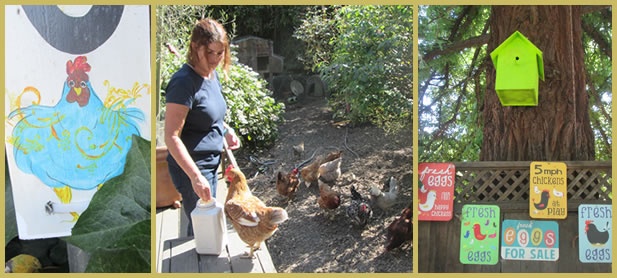
Mill Valley Chickens
By Karen Hamilton-Roth